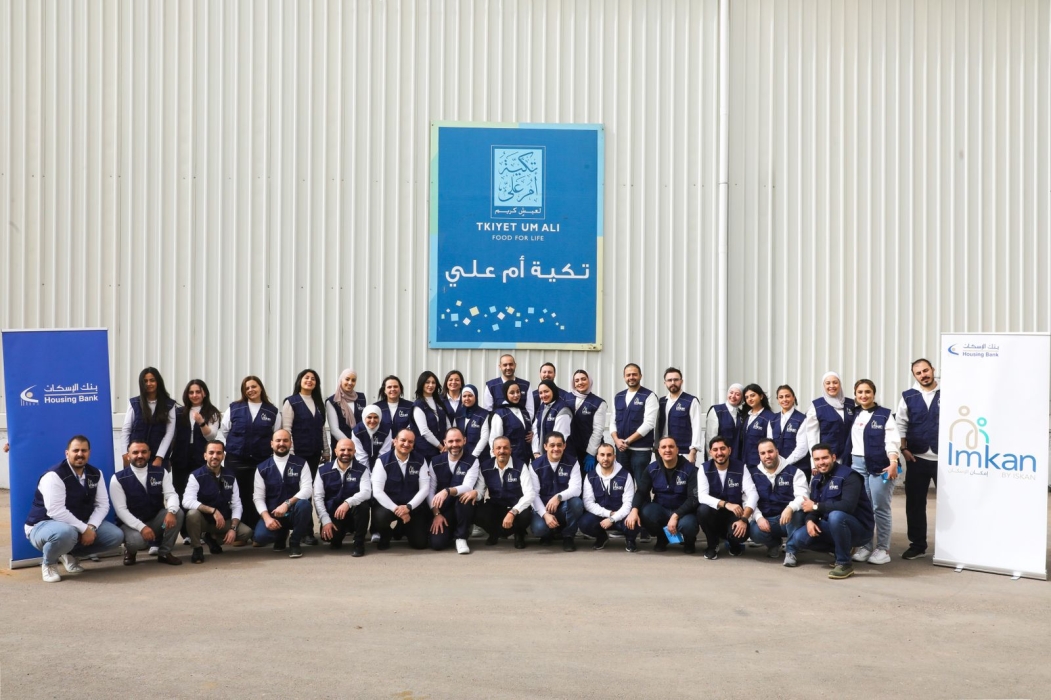Hasasan : time is not on our side and financial reform is necessary.

During an information meeting with the economic team for the government
Hassan : time is not on our side and financial reform is necessary.
Hassan : there is no alternative for financial reform program .
Hassan : the government does not raise ideas and wishes
Hassan: endorsement of the draft income tax law this year
Hassan : we will not mend the goals of economic stimulation plan .
Alqudah : the free trade agreement with Turkey did not achieve its goals .
Alqudah : the partnership with the private sector does not always respond to it
Shehadah : the growth of investment is not enough .
Murad: the new labour law is catalysts for women .
Amman - johina news - Ala’a Allan
The deputy prime minister , Secretary of State for economic affairs Dr. Jaafar Hassan refused to talk about the edit of the goals of economic stimulation plan, this came during an information meeting that was held yesterday Sunday at the office of the prime minister with presence of Hassan and the economic team for the government ( the ministry of industry and trade and the Secretary of State for economic affairs and the minister of labor ) and the minister of State for media affairs .The official spokesman of the government Dr. Mohammad Almomani.
Hassan said we will not mend our goals that are based on a clear objectives and we must take our available options to us and further options every year in order to accelerate our progress towards the goals of achieving real growth rate of the our economy to 5% as a real growth rate at the end of the plan period.
He added that the Jordanian citizens suffers from slow economic growth and lack of opportunities and many of life challenges.
Speaking about the administrative financial reform program, Hassan said it was necessary to tackle the challenges and a parallel program was needed to carry out financial reforms and overcome difficulties.
Hassan said the program is indispensable so as not to be held hostage by the fluctuations around us. Financial reform should also face tax evasion, tax reforms and a national dialogue.
Hassan said "Time is not working for us and we need to work within an integrated program
Hassan reviewed the situation of the Jordanian economy and the increase of indebtedness by more than 42% during the past eight years, in addition to the public debt service rose half a billion dinars as an annual increase in 2010. He said that if the government did not undertake economic options, the public debt service would increase.
Hassan linked the implementation of the financial reform program to the Kingdom's credit rating. Standard & Poor's issued the 2018 credit rating and Jordan's rating at B + was confirmed as a result of the government's ability to stabilize the debt level in 2017 at the level of the year 2016, in addition to the adoption by the government of a package of financial reforms in 2018 within the law of the general budget approved by the House of Representatives.
Hassan pointed out that the economic challenges, including the high cost of energy and the interruption of Egyptian gas led to a rise in the total debt of the Kingdom of 95.6% of GDP, and we must look for solutions.
On the tasks of the economic team, Hassan said that the task of the economic team to implement the reforms that have been years of study and a large number of them are still in place.
Hassan has the features of the five-year economic growth stimulation plan, which requires public-private partnership that seeks to increase growth and is linked to four main pillars (legislation, financing, production costs and government action)Where the government will send legislative reforms to the National Assembly and include several laws, including the law of the transfer of movable law bankruptcy, insolvency, labor, customs and medical accountability and will impact the impact of this legislation on small and medium-sized enterprises.
Regarding the new income tax law, Hassan said a draft amended law on the income tax law would be prepared and passed for the coming period of the National Assembly this year.
Hassan pointed to the lack of confidence between the government, the citizens and the media, saying that the citizens and the media question what the government is making and therefore launched an electronic Razmana and will be accountable to each ministry for its completion, and aims to resolve the problems and not only follow-up.
He said that the government does not raise ideas and wishes but plans of action, and will do everything in its power to stimulate the economy because we live in a changing reality and all that is happening around us affects our economy, and our aim is to move our economy to a better situation.
Hassan said that production costs should be reviewed, studied and re-routed, in addition to re-establishing a number of economic partnerships with several countries.
For his part, Minister of State for Investment Mohannad Shehadeh said that the investment is growing but not enough to be reflected on the economy in general, adding that investment flows increased and in 2016 -2017 during the first nine months there was growth of 19.1% according to the Central Bank figures, 2017/2016 growth rate of 15% but this is not enough.
He said that the number of companies that benefited from the investment law grew by 3% and eventually the growth is not enough for reasons we all know.
In response to the issue of high costs on the industrial sector, Shehadeh said that the cost on the industrial sector is rising but the Jordanian economy is not all industry only, and do not want to limit our thinking industry and costs, indicating that work is opening new markets, including Africa.
In turn, Minister of Industry and Trade Yabud al-Qudah said that the concept of partnership with the private sector does not mean responding to everything the private sector says.
Al Qudah defended the suspension of the free trade agreement with Turkey, saying that chambers of industry and trade participated in all closed-door meetings during the negotiation of the agreement in July 2017, adding that some were affected by the cancellation of the agreement does not mean that the government violates the principle of partnership with the private sector.
He said that free trade agreements should be mutually beneficial and if not available, they should be reconsidered, and the government started this in a free trade agreement with Turkey, which had very limited impact with Jordan.
Al qudah said that the government's decision to take the dimensions of non-economic, adding that the agreement when it signed based on three rules is to increase trade exchange between the two countries and the government at the time believes that our exports will increase and the second section is the Turkish investments in the productive sector and did not exceed 20 million dinars after 5 years, the third is to provide a package of technical assistance to the Jordanian private sector over the first five years. These axes have not been realized. In addition, this agreement applies the old European rules of origin which we can not apply in Jordan pointing that Stressing that the government will review the other agreements to achieve the national interest, noting that the government will not sign a free trade agreement without full agreement with the private sector.
The Free Trade Agreement with the United States of America said that Jordan's exports to America amounted to 1.7 billion dollars, one of the most successful agreements concluded, but the government and the private sector failed to exploit this agreement.
The judges stressed the government's support for the private sector to work on reviewing legislation that will contribute to reducing costs on the sector, which will reflect on the cost of production.
The judges said next week that the insolvency and bankruptcy law, one of the most important economic laws, would be used to stimulate economic growth, noting that 15 years ago, Jordan was talking about the
Al qudah stressed the high cost of production in Jordan, pointing out that the traditional markets are closed and there is work to open non-traditional markets such as the African market, and the government will study the cost of production.The government will study production costs.
On the Karama-Tarbil crossing, alqudah said that Jordanian trucks would be allowed to pass through the Karama crossing with Iraq and reach Baghdad after the visa issue was completed.
For his part, Minister of Labor, Samir Murad, described the new labor law as the catalyst for women to contribute to enhancing its role. Mourad discussed the importance of controlling the labor market and this is what the government is working on during the campaign to rectify the situation.
Translated by Diana Hilal














